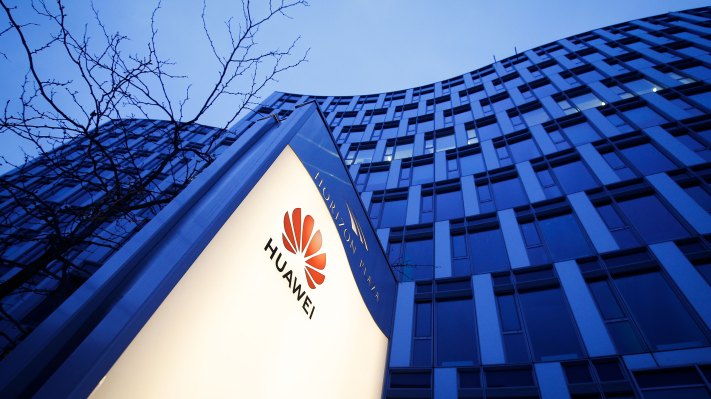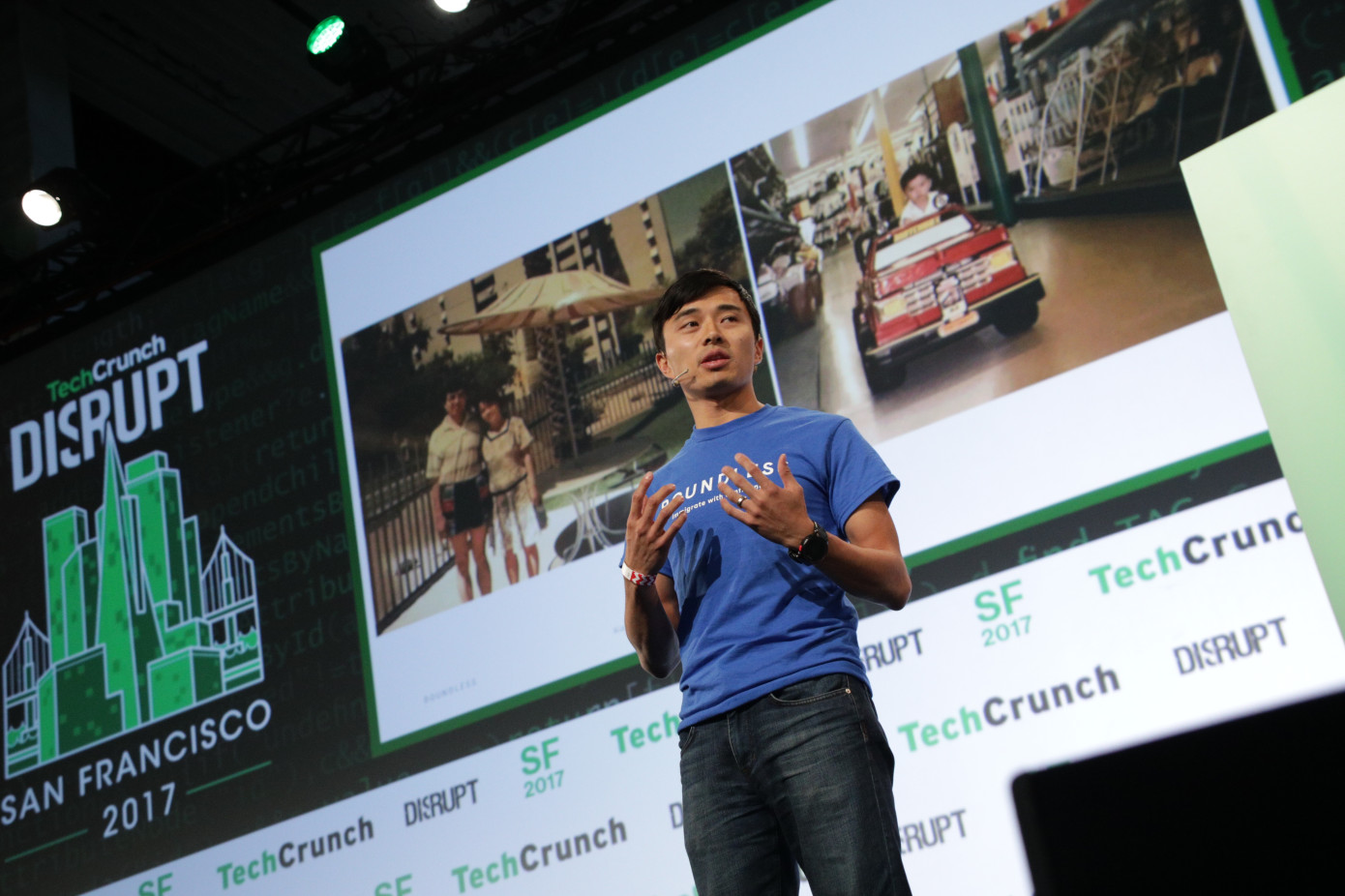Music
Trailers
DailyVideos
India
Pakistan
Afghanistan
Bangladesh
Srilanka
Nepal
Thailand
StockMarket
Business
Technology
Startup
Trending Videos
Coupons
Football
Search
Download App in Playstore
Download App
Best Collections
Technology
Mukesh Ambani, Indiarichest man, is ready to take on Amazon and WalmartFlipkart.
Reliance Retail and Reliance Jio, two subsidiaries of AmbaniReliance Industries, said they have soft launched JioMart, their e-commerce venture, in parts of the state of Maharashtra — Mumbai, Kalyan and Thane.
The e-commerce venture, which is being marketed as &Desh Ki Nayi Dukaan& (Hindi for new sore for the country), currently offers a catalog of 50,000 grocery items and promises &free and express delivery.&

In an email to employees, accessed by TechCrunch, the two aforementioned subsidiaries that are working together on the e-commerce venture, said they plan to expand the service to many parts of India in coming months. A Reliance spokesperson declined to comment.
The soft launch this week comes months after Ambani, who runs Reliance Industries — Indialargest industrial house — had said at a conference that he wants to service tens of millions of retailers and store owners across the country.
If there is anyone in India who is positioned to compete with Amazon and Walmart, it is him. Reliance Retail, which was founded in 2006, is the largest retailer in the country by revenue.It serves more than 3.5 million customers each week through its nearly 10,000 physical stores in more than 6,500 Indian cities and towns.
Reliance Jio is the largest telecom operator in India with more than 350 million subscribers.The 4G-only carrier, which launched commercial operations in the second half of 2016, disrupted the incumbent telecom operation in the country by offering bulk of data and voice calls at little to no charge for an extended period of time.
More to follow…
- Details
- Category: Technology
Read more: India’s richest man is ready to take on Amazon and Walmart’s Flipkart
Write comment (94 Comments)Postmates and Uber have filed a complaint in California federal district court, alleging that a bill limiting how companies can label workers as independent contractors is unconstitutional. The complaint, which includes two gig workers as co-plaintiffs, was filed in U.S. District Court on Monday, days before Assembly Bill 5 (AB-5) is due to go into effect on Jan. 1. It asks for a preliminary injunction against AB-5 while the lawsuit is under consideration.
The complaint argues that AB-5 violates several clauses in the U.S. and California constitutions, including equal protection because of how it classifies gig workers for ride-sharing and on-demand delivery companies compared to the exemptions it grants to workers who do &substantively identical work& in more than twenty other industries.
AB-5 was authored by Assemblywoman Lorena Gonzalez, a Democrat representing the 80th Assembly District in southern California and signed into law in September by Governor Gavin Newsom. It is intended to uphold the ruling in Dynamex Operations West Inc. v Superior Court of Los Angeles, a landmark 2018 decision by the California Supreme Court about how employees and independent contractors should be classified, and ensure that gig economy workers are entitled to benefits like minimum wage, health insurance and workers& compensation.
But the suitopponents, which includes tech companies whose business models rely on the gig economy, as well as groups of gig workers and freelance journalists, argue that it restricts their work opportunities and ability to earn money.
In addition to Uber and Postmates, the complaints& plaintiffs also include Lydia Olson and Miguel Perez, drivers for on-demand companies. In a post on Postmates& blog, Perez wrote that he joined the suit because AB5 &is threatening the freedom and flexibility I have relied on in recent years to support my family.&
A statement from Postmates said &AB5 is a blunt instrument, which is why lawmakers exempted 24 industries, seemingly at random, from its requirements.&
The company added that does not want to be exempted from AB-5 or reverse the Dynamex standard, but &call for industry and labor talks with the California legislature to modernize a robust safety net designed specifically for the needs of on-demand workers, that establishes a new portable benefits model, creates earnings guarantees higher than minimum age, and gives all workers both the strong voice they need and flexibility they demand—a framework not currently contemplated under state and federal law.&
As proof that AB-5 violates the equal protection clause, the complaint argues that &the vast majority of the statute is a list of exemptions that carve out of the statutory scope dozens of occupations, including direct salespeople, travel agents, grant writers, construction truck drivers, commercial fisherman, and many more. There is no rhyme or reason to these nonsensical exemptions, and some are so ill-defined or entirely undefined that it is impossible to discern what they include or exclude.&
The complaint also alleges that AB-5 violates due process by preventing people from choosing to work for gig companies, and the contracts clause because mandating companies like Uber and Postmates to reclassify contractors as employees will either invalidate or substantially change their existing contracts.
In statement about the lawsuit, Gonzalez said &the one clear thing we know about Uber is they will do anything to try to exempt themselves from state regulations that make us all safer and their driver employees self-sufficient. In the meantime, Uber chief executives will continue to become billionaires while too many of their drivers are forced to sleep in their cars.&
The lawsuit follows several efforts to stop or limit AB-5. In October, a group of drivers for Lyft, Uber and DoorDash announced they had submitted a California ballet initiative for the November 2020 ballot in response to AB-5. The measure which received substantial financial support from those companies, seeks to enable drivers and couriers can continue to be independent contractors while guaranteeing benefits like a minimum wage, expenses, healthcare and insurances.
Earlier this month, several organizations representing freelancer writers filed a lawsuit in federal court in Los Angeles alleging AB5 places unconstitutional restrictions on free speech, the day after Vox Media announced it will cut hundreds of freelance positions in California as it prepares for the bill.
- Details
- Category: Technology
Read more: Uber and Postmates claim gig worker bill AB-5 is unconstitutional in new lawsuit
Write comment (96 Comments)
Huawei reported resilient revenue for 2019 on Tuesday as the embattled Chinese technology group continues to grow despite prolonged American campaign against its business, but cautioned that growth next year could prove more challenging.
Eric Xu, Huaweirotating chairman, wrote in a New Yearmessage to employees that the companyrevenue has topped 850 billion Chinese yuan ($122 billion) this year, a new record high for the Chinese group and an 18% increase over the previous year.
Xu said Huawei, the second largest smartphone maker globally, sold 240 million handsets this year, up from 206 million last year.
&These figures are lower than our initial projections, yet business remains solid and we stand strong in the face of adversity,& he wrote.
He acknowledged that Huawei is confronting a &strategic and long-term& campaign against its business by the U.S. government. If the campaign persists for long, it would create even more &difficult& environment for the 32-year-old firm to &survive and thrive,& he said.
Survival would be the companyfirst priority in 2020, he said.
The U.S. added Huawei to the Commerce Departmenttrade blacklistthis year, and placed new restrictions on its ability to sell to — and maintain commercial relations with — American companies. The U.S. government has also urged its allies to not use Huawei products in building the next generation of their telecom network infrastructure, alleging that the Chinese company poses a threat to national security.
In October, U.S. Commerce Secretary Wilbur Ross said in a conference in New Delhi that he hopes that India, the worldsecond largest telecom market,&does not inadvertently subject itself to untoward security risk& by using 5G equipment from Huawei.
But not all U.S. allies have heeded its advice. On Monday, Huawei secured a major victory in India, which approved Huaweirequest to participate in trials of its 5G spectrum.
&We thank the Indian government for their continued faith in Huawei,& Jay Chen, the companyIndia CEO said in a statement. &We firmly believe that only technology innovations and high quality networks will be the key to rejuvenating the Indian telecom industry,& he added.
- Details
- Category: Technology

Funding for tech startups has been on an inevitable upswing for years, a result of a virtuous circle where wildly successful tech companies on the public markets whet the appetites of investors and investors& backers to find more diamonds, a push met by a pull from the rush of talent with entrepreneurial aspirations out to put that money to work. 2019 has felt a bumper year in that longer trend, with 9-figure rounds ($100 million or more) and &unicorn& statuses so prevalent that the numbers have started to cease to be news items in themselves.
With 2020 now just days away, a look at the 50 biggest funding rounds for start-ups in the past year draw out some trends. We&re pulling out the top five below for a closer look, but itinteresting too to see some of the other trends emerging across the rest of the pack.
Automotive remains a huge pull when it comes to raising big bucks: part of the reason is because the space is capital intensive, as it straddles both software and hardware (that is, not just equipment but cars). Capex is another reason for some of the other big investment rounds of the year, such as the biggest of them all, for an internet data center startup.
Asian companies figure massive in the list, and account for 7 of the 10 biggest rounds in the list.
Small players: there were only three companies in health tech in the top 50, only one in education technology, and only three in the areas of AI and robotics. I don&t know if that means these areas simply don&t require as much capital investment, or if these challenges are simply not as interesting right now for investors as those more squarely focused on revenue generation and business needs. Hopefully the former, as the wider tech world faces a lot of cynicism and skepticism from the public, and could use a better profile from solving actual problems.
Note: for this piece we have focused on investments made in pre-IPO technology companies, and on new equity investments rather than secondary or debt rounds.
- Details
- Category: Technology
Read more: The five biggest rounds in tech in 2019 and what they mean
Write comment (98 Comments)Venture capital investment exploded across a number of geographies in 2019 despite the constant threat of an economic downturn.
San Francisco, of course, remains the startup epicenter of the world, shutting out all other geographies when it comes to capital invested. Still, other regions continue to grow, raking in more capital this year than ever.
In Utah, a new hotbed for startups, companies like Weave, Divvy and MX Technology raised a collective $370 million from private market investors. In the Northeast, New York City experienced record-breaking deal volume with median deal sizes climbing steadily. Boston is closing out the decade with at least 10 deals larger than $100 million announced this year alone. And in the lovely Pacific Northwest, home to tech heavyweights Amazon and Microsoft, Seattle is experiencing an uptick in VC interest in what could be a sign the town is finally reaching its full potential.
Seattle startups raised a total of $3.5 billion in VC funding across roughly 375 deals this year, according to data collected by PitchBook. Thatup from $3 billion in 2018 across 346 deals and a meager $1.7 billion in 2017 across 348 deals. Much of Seattlerecent growth can be attributed to a few fast-growing businesses.
Convoy, the digital freight network that connects truckers with shippers, closed a $400 million round last month bringing its valuation to $2.75 billion. The deal was remarkable for a number of reasons. Firstly, it was the largest venture round for a Seattle-based company in a decade, PitchBook claims. And it pushed Convoy to the top of the list of the most valuable companies in the city, surpassing OfferUp, which raised a sizable Series D in 2018 at a $1.4 billion valuation.
Convoy has managed to attract a slew of high-profile investors, including Amazon Jeff Bezos, Salesforce CEO Marc Benioff and even U2Bono and the Edge. Since it was founded in 2015, the business has raised a total of more than $668 million.
Remitly, another Seattle-headquartered business, has helped bolster Seattlestartup ecosystem. The fintech company focused on international money transfer raised a $135 million Series E led by Generation Investment Management, and $85 million in debt from Barclays,Bridge Bank, Goldman Sachs and Silicon Valley Bank earlier this year. Owl Rock Capital, Princeville Global, Prudential Financial, Schroder - Co Bank AG and Top Tier Capital Partners, and previous investors DN Capital, Naspers& PayU and Stripes Group also participated in the equity round, which valued Remitly at nearly $1 billion.
Up-and-coming startups, including co-working space provider The Riveter,real estate business Modus and same-day delivery service Dolly, have recently attracted investment too.
A number of other factors have contributed to Seattlelong-awaited rise in venture activity. Top-performing companies like Stripe, Airbnb and Dropbox have established engineering offices in Seattle, as has Uber, Twitter, Facebook, Disney and many others. This, of course, has attracted copious engineers, a key ingredient to building a successful tech hub. Plus, the pipeline of engineers provided by the nearby University of Washington (shout-out to my alma mater) means thereno shortage of brainiacs.
Therelong been plenty of smart people in Seattle, mostly working at Microsoft and Amazon, however. The issue has been a shortage of entrepreneurs, or those willing to exit a well-paying gig in favor of a risky venture. Fortunately for Seattle venture capitalists, new efforts have been made to entice corporate workers to the startup universe. Pioneer Square Labs, which I profiled earlier this year, is a prime example of this movement. On a mission to champion Seattleunique entrepreneurial DNA, Pioneer Square Labs cropped up in 2015 to create, launch and fund technology companies headquartered in the Pacific Northwest.

Boundless CEO Xiao Wang at TechCrunch Disrupt 2017
Operating under the startup studio model, PSLteam of former founders and venture capitalists, including Rover and Mighty AI founder Greg Gottesman, collaborate to craft and incubate startup ideas, then recruit a founding CEO from their network of entrepreneurs to lead the business. Seattle is home to two of the most valuable businesses in the world, but it has not created as many founders as anticipated. PSL hopes that by removing some of the risk, it can encourage prospective founders, like Boundless CEO Xiao Wang, a former senior product manager at Amazon, to build.
&The studio model lends itself really well to people who are 99% there, thinking ‘damn, I want to start a company,& & PSL co-founder Ben Gilbert said in March. &These are people that are incredible entrepreneurs but if not for the studio as a catalyst, they may not have [left].&
Boundless is one of several successful PSL spin-outs. The business, which helps families navigate the convoluted green card process, raised a $7.8 million Series A led by Foundry Group earlier this year, with participation from existing investors Trilogy Equity Partners, PSL, Two Sigma Ventures and Founders& Co-Op.
Years-old institutional funds like SeattleMadrona Venture Group have done their part to bolster the Seattle startup community too. Madrona raised a $100 million Acceleration Fund earlier this year, and although it plans to look beyond its backyard for its newest deals, the firm continues to be one of the largest supporters of Pacific Northwest upstarts. Founded in 1995, Madronaportfolio includes Amazon, Mighty AI, UiPath, Branch and more.
Voyager Capital, another Seattle-based VC, also raised another $100 million this year to invest in the PNW. Maveron, a venture capital fund co-founded by Starbucks mastermind Howard Schultz, closed on another$180 million to invest in early-stage consumer startups in May. And new efforts like Flying Fish Partners have been busy deploying capital to promising local companies.
Therea lot more to say about all this. Like the growing role of deep-pocketed angel investors in Seattle have in expanding the startup ecosystem, or the non-local investors, like Silicon Valleybest, who&ve funneled cash into Seattletalent. In short, Seattle deal activity is finally climbing thanks to top talent, new accelerator models and several refueled venture funds. Now we wait to see how the Seattle startup community leverages this growth period and what startups emerge on top.
- Details
- Category: Technology
Read more: In the shadow of Amazon and Microsoft, Seattle startups are having a moment
Write comment (93 Comments)
2019 was a packed year for commercial space and space startups, but 2020 isn&t likely to see any kind of slowdown. In fact, itgoing to get a lot busier in a few key ways that could have the effect of driving even more enthusiasm, energy and funding into the emerging space tech industry.
The biggest thing happening in space next year is easy to pick out already: NASACommercial Crew program. Both of the partners the agency selected to work with it on returning human launch capabilities to American soil, Boeing and SpaceX, are in the process of accomplishing the last key things they need to get done before actually putting astronauts on board their spacecraft, and it seems very likely that 2020 is when we&ll finally see those missions fly.
Herea breakdown of that and other things to watch for 2020 in space tech that will define the industry, and determine whether it continues to be a hotbed of investment and activity, or whether it slows in terms of VC and startup interest.
Crew flights
Like I said, the commercial crew program will be the single most important thing to watch in 2020 in terms of the space industry. Thatnot because SpaceX and Boeing/ULA gaining the ability to launch astronauts on behalf of NASA will directly open up opportunities for startups and entrepreneurs: Itnot likely going to, in fact.
Instead, actually successful crew flights from commercial space companies will see as a broad confidence booster and a sign that the infrastructure required for a true space-based startup boom is proceeding apace. Commercial crew flights are primarily intended to give the U.S. a key strategic capability in the global space technology space, but they also open up a new, continuous revenue stream for the larger and more established companies in this ecosystem & Boeing and SpaceX for now, with the potential to open it up even further.
Having two companies with spacecraft certified for human flight in the U.S. will mean those players have more revenue and available capital to re-invest in the ecosystem, including through partners and suppliers, and it also potentially means that private commercial astronauts will have more opportunity to take a ride and embark on missions for commercial research, experimentation and development in space.
- Details
- Category: Technology
Read more: Commercial space is going mainstream in 2020
Write comment (92 Comments)Page 19 of 5614

 8
8







